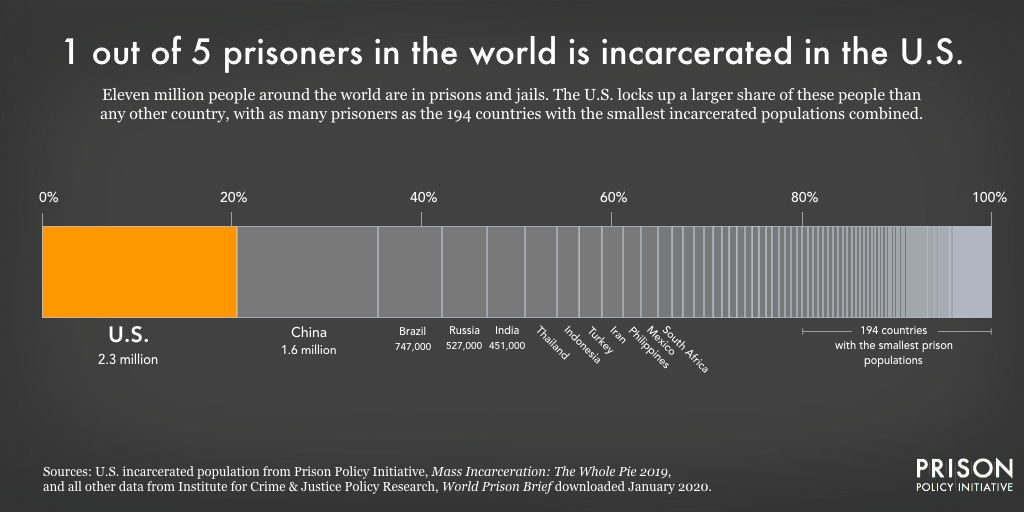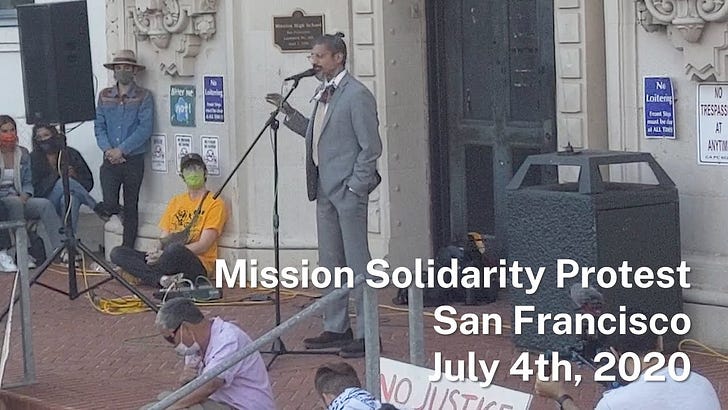Described by the Smithsonian as “our nation’s second Independence Day,” Juneteenth is the most recent federal holiday to gain formal recognition. It commemorates the approximate date—more than two years after President Lincoln declared the Emancipation Proclamation—when enslaved people in Texas were notified by Union soldiers that they were free.
The Emancipation Proclamation was more aspirational than meaningful when it was issued, and Juneteenth remains that way today. Most Americans cling to feel-good versions of history, however, rather than acknowledge the reality that remains all too visible under our noses.
By all means, celebrate Juneteenth. But don’t pretend that slavery ever ended in the United States.
Then and Now
The Emancipation Proclamation purported to free only Black Americans enslaved in rebel states that rejected Washington’s jurisdiction. Because Lincoln explicitly declined to free slaves who lived in states that remained in the Union, it was legally meaningless when issued (although it attained tremendous significance in areas later liberated by the Union army).
Some have argued that Lincoln’s legal authority to liberate enslaved Black Americans did not extend into Union, since he issued the proclamation under his authority as Commander-in-Chief rather than through any legislative process necessary to compel an interference with property rights recognized by states. To pretend that a president’s power is weaker at home than it is in warring states, however, is farcically foolish.
150 years later, Juneteenth was adopted as a national holiday in 2021, continuing Joe Biden’s habit of highlighting acts of political theater while doing more or less nothing to guard or advance civil rights in practice. Ultimately, Biden’s adoption of Juneteenth as a federal holiday was even more performative than Lincoln’s statement setting free slaves in territories that rejected his authority.
While Juneteenth went on to attain tremendous significance during the all-too-brief Reconstruction period, it is widely described today as celebrating an achievement that the United States has, in fact, never embraced: the end of slavery.
Juneteenth is as good a day as any to remember that in 2023, more Americans remain legally enslaved than were held in bondage at the height of the Antebellum South. The 13th Amendment purported to end forced servitude, but notably preserved it as a condition of punishment.
And the United States imprisons, by far, more people than any country in the world. Despite representing just 2% of the global population, our “land of the free” imprisons 20%—1 out of 5—of its prisoners.
The notion that Biden would claim any credit for enshrining Juneteenth as a national holiday is frankly grotesque when considered in light of his policy record as a Senator before weaseling his way into the White House. He was the author of the 1993 crime bill that notoriously swelled the ranks of our nation’s prisons, as well as the quarterback of the process that put Clarence Thomas on the Supreme Court—reflecting yet again Biden’s long history of theatrical nods to the concerns of Black communities while ignoring their needs and interests in practice.
Mass incarceration as labor strategy
Beyond its legally perverse historical origins, mass incarceration is even more disturbing when considered from the standpoint of contemporary economics. Seen through that lens, it is not only a grave abuse of human rights, but also an industrial labor strategy with terrifying implications.
America’s prison system did not fall from the sky. It is the product of policy choices constructing a network of institutions (including perverse private prisons-for-profit) filled by millions of people who work without the benefit of any labor protections. Many of them were railroaded by coercive plea bargains, rather than allowed opportunities to exercise their constitutional rights to an impartial trial and the presumption of innocence.
When Americans wring their hands in the face of Washington’s contemporary fascism and cling to the distinction that “we don’t have death camps,” they might be overlooking that the concentration camps built by Nazi Germany were as much slave labor camps as they were death camps. They also conveniently forget that the Nazis found America’s “one drop” rule too vicious to replicate, and crafted their genocidal strategy targeting Jews based on the genocide of Native Americans by the United States.
Today’s slavery-via-penitentiary is at least multiracial.
Those are meager scraps for which too many settle.
By all means, celebrate Juneteenth. But don’t pretend that slavery ever ended in the United States.
Paid subscribers can access an audio recording and the lyrics of an electronic dance track that I wrote & co-produced in the wake of the 2014 Ferguson uprising to explain the international connections between policing, arbitrary state violence, and bipartisan U.S. foreign policy.
Thanks for listening!
Listen to this episode with a 7-day free trial
Subscribe to Chronicles of a Dying Empire to listen to this post and get 7 days of free access to the full post archives.












